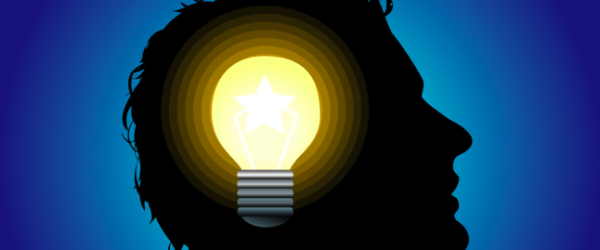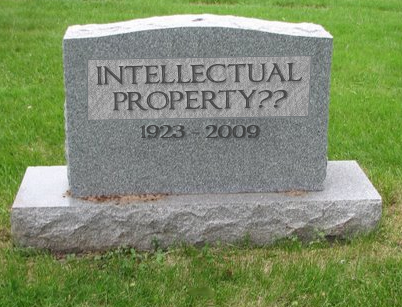
Photojournalism and Intellectual Property Theft
Culture, Digital
While the rule of thumb provides some flexibility to the UK copyright law enforcement, the increasing number of allegations over the misuse of photographers’ images by a wide range of UK publications online has raised concerns of the rapid rise in digital accessibility of images and authors’ control over their intellectual property rights.
Over last year, BJP reported that the Daily Mail Online had been accused of infringing on photographers’ copyright five times. In one of the cases occurred in last May, the tabloid admitted that it had taken three images from Twitpic without payment or authorization. The pictures, shot by Emily James of Just Do It on Election Day in East London, were used by the tabloid to illustrate their story on the polling station chaos. Since Twitpic’s terms and conditions establish that ‘all images uploaded are copyright © their respective owners’ and ‘for any commercial use third parties must contact the copyright holder and seek permission’, James demanded a public apology and wrote to the Mail a £1,170 invoice – the standard rate recommended by the NUJ, £130 per image, multiplied it by three for use without ‘knowledge, consent or permission’-. After her refusal to accept Mail’s initial offer to pay £40 per image, Group Managing at the Daily Mail Alex Bannister and James reached a confidential financial agreement -although no apology was made -.
The rise in digital accessibility of images and photographers’ current practice of posting their pictures on social networking sites present today’s creative authors with some big issues that need to be considered very carefully. Any images put onto these sites are automatically stripped of their metadata, so in order to avoid content infringement, publications have to carry out the right procedures when using images found on these sites.

Speaking to photographer and lecturer in digital practice, business and professional ethics, John Todd, his own views on this scenario lie in-between: “We need to have our work on-line and accessible and we should receive a credit and link to the authors’ website etc. This is fine for non-commercial and ‘reasonable’ use but should the image be used for any type of commercial use – including a web page that has advertising on- then a suitable fee should be paid. There are ways of policing this such as search engines that use image recognition or registering your work with a copyright database. The Creative Commons is an organization set up to look at the whole issue of digital copyright and to try and make a working model that will work as above.”
Photographer Clive Flint recently found out that one of his pictures posted on Flickr had been used by the Daily Mail Online without consent or payment. Whereas the tabloid argued that the use was ‘accidental’, the image was published under a Creative Commons license that only allows ‘non-commercial and non-derivatives uses.’
Flickr’s terms of service state that it s not permitted to ‘upload, post, email or otherwise transmit any content that infringes any patent, trademark, trade secret, copyright or other proprietary rights of any party’. Despite this, the social site has recently extended an agreement with Getty Images by which any Flickr members can sell their photos through this company.
Lawyer Rishi Nanda believes that the practice of inserting copyrighted material in social sites like Facebook or Twitter is ‘non-negotiable’ with the company, therefore, authors run the risk of having their own images published somewhere else without their authorization. About the cost of bringing legal actions into the court, he is pessimistic: “The cost of bringing an action against an infringement claim is very high. It is a very long process and the chances of successful are very remote.”
The copyright system does not work automatically in the UK; the attribution of one’s work to the legitimate creator has to be asserted, so the author has to demand his/her moral rights. The existing UK copyright law is currently being reviewed and the coalition government is possibly going to introduce new legislation based on European and USA models; most photographers and artists have major concerns over this.
“The whole area of copyright is a ‘grey’ area; many cases are settled out of court due to the vagueness of the current law (1988) and the expense of going to court etc. The other big problem is copyright law changes considerably from country to country – so if you have an image in a picture library or on a blog and it suddenly appears on a website in another part of the world you may have real problems in enforcing your ownership of that image”, Todd says.
Finers Stephens Innocent is the UK firm of lawyers used by the Association of Photographers as advisors on copyright issues; the organization has published Beyond the Lens, an essential guide with information on copyright, ethics and business practice within professional photography industry. The National Union of Journalists also gives guidance for editors on copyright clauses for contractual agreements, and the organization Own-It offers free intellectual property advice for creative businesses.
Stop 43 is a professional photographers’ group and activists who have recently launched an initiative on copyright reform. The campaign is aimed to change the current law, and among their demands, they are fighting for automatic copyright and moral rights for all photographs, fair contract law applied to intellectual property, and the prohibition to create orphan photographs. The group joined forces last year to launch their own Stop 43 online campaign to protest against Clause 43 of the Digital Economy Bill – which allowed the Secretary of State to grant licensing powers to the orphan works to a third party organization after an unsuccessful diligent search to find its author-, the campaign proved successful in lobbying the MPs, and eventually the government dropped the clause. BJP is also planning the launching of the Your Rights campaign with the aim of exposing copyright infringement, raising awareness about photographers’ copyright, as well as helping them to protect and defend their rights.
So it seems that copyright issues in the digital era remain a controversial area for photographers and authors. The new virtual platforms for display artistic works and the accessibility of images online have highlighted a new scenario that artists have to be familiarized with, not only because internet is changing arts industry but because it presents new risks that artists need to know how to deal.























[…] Story published in Zouch Magazine […]